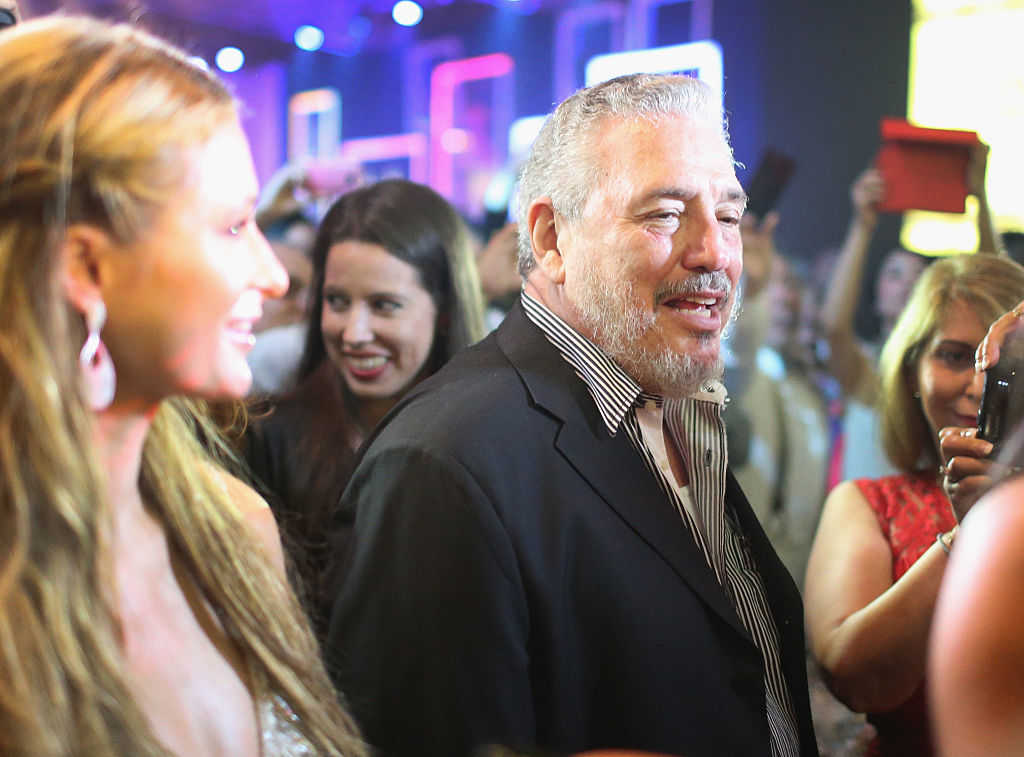The eldest son of the late Cuban dictator Fidel Castro committed suicide on Thursday, according to the country’s state media.
READ: Tony Perkins Responds to Criticism for Saying He’d Give Trump a ‘Mulligan’ for Past Behavior
Fidel “Fidelito” Castro Diaz-Balart, 68, reportedly took his own life after struggling for months with depression, Fox News reported.
The finer details are unclear, but Diaz-Balart, who was a nuclear scientist, the vice-president of the Cuban Academy of Sciences and a scientific advisor to the Council of State, a governing body in Cuba, was reportedly being treated for his condition before his death.
“Fidel Castro Diaz-Balart, who had been treated by a group of doctors for several months due to deep depression, took his life this morning,” Granma, Cuba’s official newspaper, reported.
Diaz-Balart, who was trained by the former Soviet Union, ran Cuba’s nuclear program from 1980 through 1992, the BBC reported.
He was born in 1949 before the Cuban Revolution and looked very much like his father; this also accounted for why he was known by the nickname “Fidelito.”
As a child, Diaz-Balart was also the subject of a bizarre and “dramatic” custody battle between Castro and his mother, Mirta Diaz Balart, Castro’s first wife. Diaz-Balart was brought to the U.S. after the couple separated, something that angered Fidel Castro.
“I refuse even to think that my son may sleep a single night under the same roof sheltering my most repulsive enemies and receive on his innocent cheeks the kisses of those miserable Judases,” Castro once wrote to his sister Lidia, as Fox News noted.
The New York Times captured just some of the strange custody elements:
Mr. Castro Díaz-Balart’s early childhood was marked by a bitter custody battle between his parents, who divorced in 1955 when he was 6.
The year after, when both of Mr. Castro Díaz-Balart’s parents were in Mexico, his father arranged for his son to visit him for two weeks. At the end of the visit, Mr. Castro placed Fidelito with a friend, and sailed to Cuba with fellow rebels on the yacht Granma to begin his guerrilla campaign against the government.
To reclaim her son, Ms. Díaz-Balart, with the help of her family and the Cuban Embassy in Mexico City, hired professional kidnappers who ambushed the boy and his guardians in a park. Reunited with her son, she took him to New York for a year. But after Mr. Castro came to power in 1959, he persuaded his former wife to send their son back to Cuba.
In the end, Diaz-Balart ended up back in Cuba, working for his father. He said in a 2013 interview that he never had political ambitions and had always kept himself in the scientific realm.
He was married to María Victoria Barreiro and is the father of three kids from his previous marriage: José Raúl Castro Smirnov, Fidel Antonio Castro Smirnov and Mirta María Castro Smirnova.
Diaz-Balart’s suicide comes more than a year after his father, Fidel Castro, died in November 2016.



